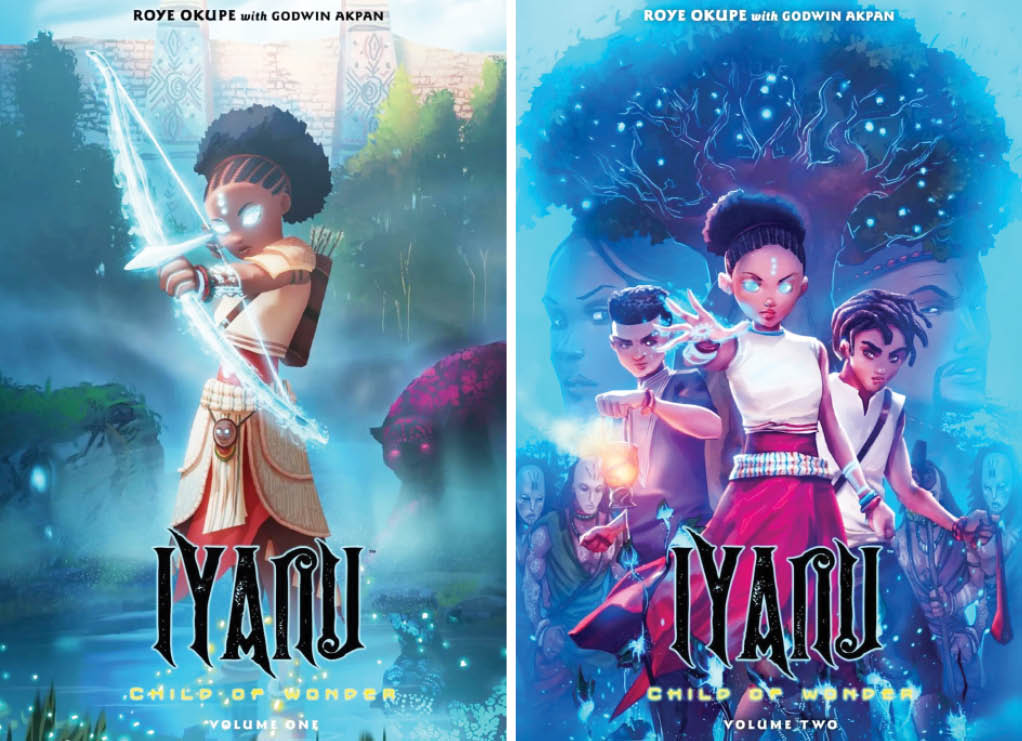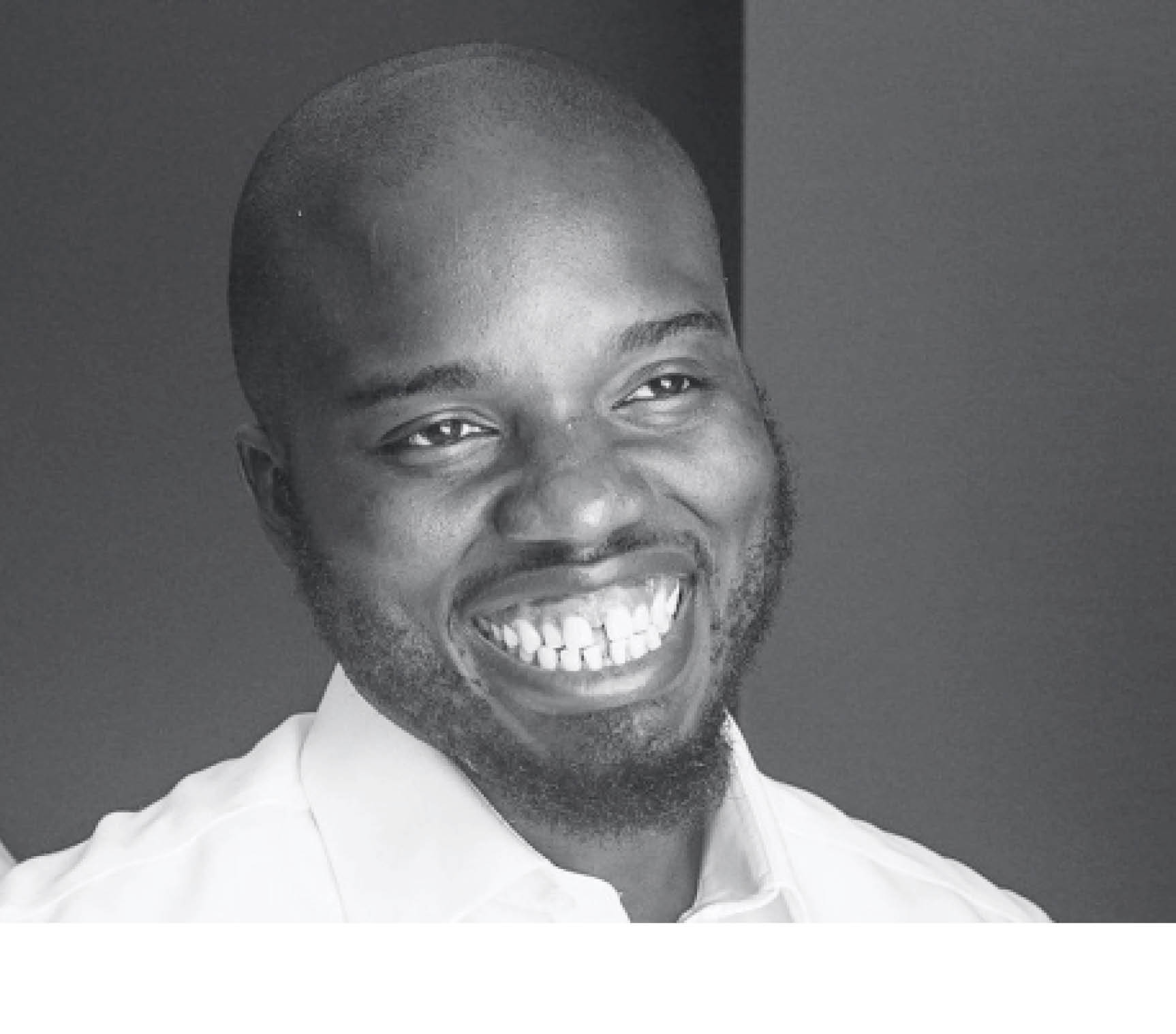From weaving the YouNeek YouNiverse — his own spin on the Marvel Cinematic Universe — to scoring international deals on comics publishing and animated productions, the present moment speaks to how far Okupe has come. OkayAfrica got to speak with Okupe about his studio, Iyanu getting adapted into an animated series, and storytelling for an African audience.
As an independent creator, what has been the greatest challenge in bringing animated characters on screen, especially for a local African audience?
I think one of the biggest challenges has been financing projects. I didn’t have an investor when I started to finance my projects, but I was lucky enough to be one of the first to embrace using Kickstarter. So I financed all my books through Kickstarter, and that is a reason why I am grateful to the fanbase because they’ve been the ones that have supported my career and the company YouNeek studios as a whole.
One of the animated series I produced in 2019 was Malaika warrior queen, which was funded exclusively on Kickstarter. I did it in partnership with AntHill studios, which is one of the best-animated studios in Nigeria, and we were able to create a fifteen-minute short for Malaika, which was based on one of my graphic novels. Queen Amina of Zaza inspires the story; it’s a pre-colonial story that follows Malaika, both warrior and queen, and it focuses on that. So for me, funding and finances are the hard part.
You mentioned AntHill studios, and we know of the HBO Max adaptation of Iyanu. And with the news of the adaptation, people are worried it won’t have Nigerian and African creatives on it. Can you speak on this?
That’s a valid concern. If I weren’t part of the project, I would also have these concerns. But I am an executive producer on [the adaption], born and raised in Nigeria, which makes me a Nigerian creator. And HBO Max, Cartoon Network, and LionForge studios — who are partners and financing the project — have been kind enough to make sure I have a voice as the creator and one of the show’s executive producers. So Godwin Akpan, who illustrated the books, will be our Art Director. We also have Femi Angubiade, one of the music composers, who is also Nigerian.
Folashade Adepoju launches book on climate change
NLNG kicks off 2023 Nigeria prizes competition
From the very early stage, HBO Max, Cartoon Network, and LionForge wanted the adaptation to be authentic. They knew that one of the ways to have authentic stories is to have authentic creators, so they’ve done their part in bringing Nigerian creatives. There’s a bunch of other Nigerian artists that are working on character designs and environment designs too. So I’ll tell people that as much as there is a concern, I feel they can rest easy knowing that Nigerians are working on this project. Our job is to create a fantastic show and something that will resonate with a global audience while staying true to Nigerian culture.

Among the graphic novels, comics, and animation under your belt, which medium do you resonate with most and why?
It’s hard to say that I resonate with one over the other because all of them offer something different. In the graphic novel and comic book space, it’s a chance to get intimate with your reader because people are taking their time to read the books and turn the pages. To some people, it can be a more immersive experience. With graphic novels, it is less expensive, so there’s a greater chance of longevity in terms of how many books you can continue to produce moving forward.
The animation medium also takes things to the next level with sound, movement, and motion; there’s much more you can do as a storyteller with animation. So I don’t necessarily have a favorite because they are two mediums I love, and they both do different things.
You created YouNeek YouNiverse to introduce audiences into a larger world of African superhero characters. How do you guide someone into this universe?
The books written in the YouNeek YouNiverse are written in a way that lets you start from any of the series. We have four graphic novels in the YouNiverse and Iyanu: Child of Wonder is arguably our most popular title. It is heavily inspired by Yoruba culture and history, and it follows the main character Iyanu as she goes on a journey when she discovers she has powers that rival the gods of her land. And it’s only with those powers that she can save her people from the corrupt; animals that have turned against humanity. Iyanu is a 13-year-old girl that wants to be normal, but she has to accept that she has an extraordinary life and step into an extraordinary journey to do what she was always meant to do, which is be the savior of Yoruba land. So you can start from any of the graphic novels because it’s all set up in a way that doesn’t confuse you.
What’s the process behind the stories you choose to tell?
I like to center everything on character. So, as much as I like to create epic worlds and worlds that are very immersive, detailed, and deep, I always center them on character. That is, who is your character, what do they think they need versus what do they actually need, and how do you make them relatable, not just to Nigerians or black people, but to anybody that is going to be reading your book in any part of the world. Because, at the end of the day, we are all human beings, and there are certain things we all share. So to me, it’s about starting with a relatable character, fitting them into a larger-than-life world, and seeing how they deal with the struggles of those worlds and how they overcome them. It starts with that and then trying to find out from the character, where the story is, how long it would be, and what are the main arcs. Then, I try to find a villain worthy of the hero we’re creating. You want to create a villain that isn’t one-dimensional, but somebody who you can see where they are coming from and whose methods put them in the [villain] category.
Building the world with the characters comes next because once I have the story written down, I start to work with the team of artists. They also bring things to the table that I don’t see. Once we have the pages and the stories, we send them off to the publisher, Dark Horse Comics. I am fortunate to have signed a 10-book deal with them in 2020.
You mentioned signing a 10-book deal with Dark Horse Comics. What does it mean for ongoing conversation on inclusivity in comics?
Dark Horse is a fantastic company that is creator-driven. They let me do what I want with the books, and they don’t get in my way, which I am grateful for. They’re one of the companies that not just talk about diversity but put their money where their mouth is, so signing a 10-book deal with a creator is no small feat. And that goes on to show how much they believe in me, our artists, the YouNeek YouNiverse, and how much they are committed to getting stories from different voices around the world to a global audience. It’s a partnership that has been going well, and I hope to continue to go well.
Is the freedom they give you the reason why you went with them, or are there other reasons?
Yes, the freedom to create what I want to make is one of the reasons why I went with them. Dark Horse Comics is a great company and a top publisher with a huge legacy in terms of what they’ve done in the comic books industry. Therefore, the fact they were offering a 10-book deal — which is unprecedented as they’ll usually offer a two-book deal and take it from there — showed how serious they were about the success of the YouNeek YouNiverse and YouNeek studios. And that was part of the reason I went with them.
Generally, what does your accomplishments mean for aspiring storytellers that hope to highlight their cultural backgrounds through the lens of animation?
I would say that I hope the things I have achieved open a wider door for the people that are coming after me because the accomplishments of the people that were ahead of me is why I’m here today. I’m just here to follow in their footsteps and use whatever resources I can to provide opportunities for other people — to put African creatives and creators on a global stage. I hope that is something that can spark a lightbulb in people’s heads to say that Africa is the next frontier for entertainment, not just in comics and animations, but in film and television, and video games too.
Culled from www.Okayafrica.com

 Join Daily Trust WhatsApp Community For Quick Access To News and Happenings Around You.
Join Daily Trust WhatsApp Community For Quick Access To News and Happenings Around You.

